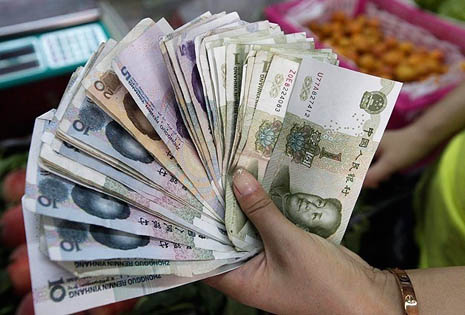The U.S. economy`s encouraging growth and the expected interest rate hike by the U.S. Federal Reserve in September, will preserve the dominance of the dollar in global foreign exchange platform, says Clarence Wong, the director of the Head of Economic Research & Consulting at AsiaSwiss
Over the short-term, Wong said ASEAN (Association of Southeast Asian Nations) countries will witness more "shocks" from further financial liberalisation by China, and monetary policy tightening by the U.S.
"We expect China to implement more financial liberalization measures, which means that there will be more shocks by China similar to the devaluation of the Renmimbi a week ago. We also see the capital or portfolio flow into the region becoming more volatile," he told Anadolu Agency on Sunday.
He added that ASEAN economies are, however, strong enough to weather any external financial shocks from China or the U.S., thanks to experience gained during the 1998 Asian financial crisis.
Wong highlighted that ASEAN economies are now mature in policy-making compared to 1998, coupled with high foreign reserves and back-up prudential measures in place.
"ASEAN countries are well-positioned to weather any financial crisis compared to emerging markets in Latin America or Central and Eastern Europe," he said.
The region is also poised for growth in the medium-term due to underlying economic fundamentals of countries, mainly the rise of the middle-income class, the regional urbanization process and the proposed ASEAN Economic Community.
Wong noted that it was also positive for ASEAN governments to allow respective currencies to depreciate against the greenback, rather than spending foreign reserves to defend them.
He said that defending the currency at a fixed level by spending foreign reserves could be fatal for ASEAN countries as it would be an expensive measure and does not ensure success.
"If you are betting against the global financial market, it is very likely that you will lose. In that case, I can see that the governments are being sensible by allowing the currency to depreciate and permitting real economies to strengthen."
On the Malaysian Ringgit, Wong said the weakening of the currency would not have significant negative impact on Malaysia’s trade competitiveness, as the country`s economic fundamentals remain intact.
He said the country`s trade figures and current account performance had surprised many pundits, which was a clear indication that the currency depreciation was not disrupting the growth process.
The ringgit has weakened to a 17-year low and maintained its place as Asia`s worst performer this year with losses exceeding 17 percent against the dollar.
More about:
















































